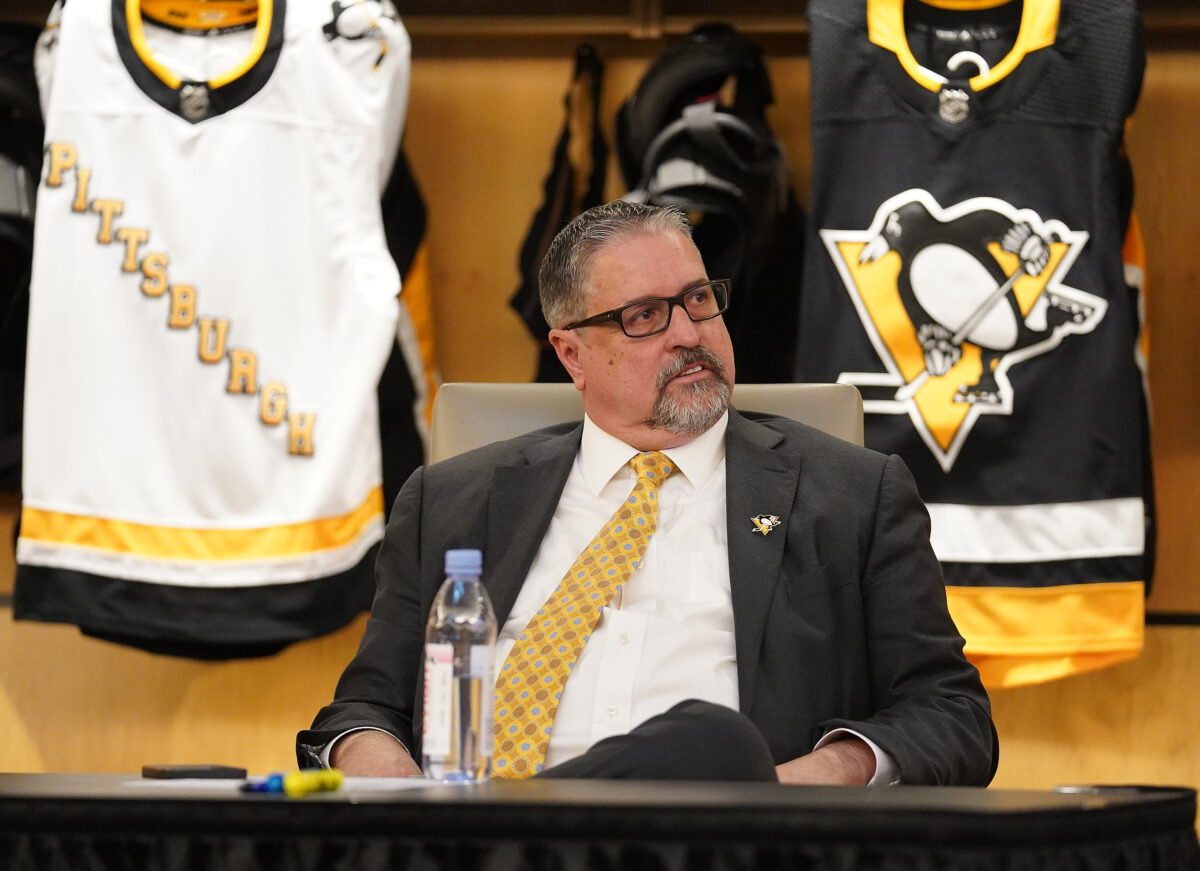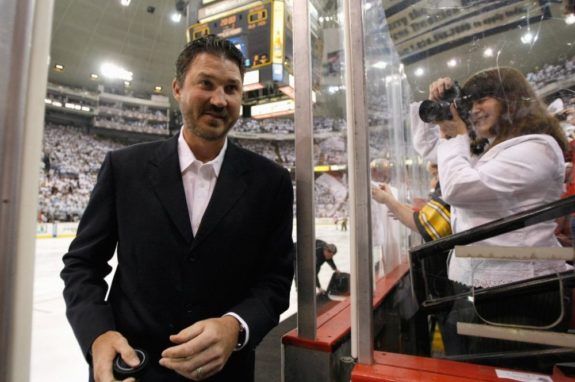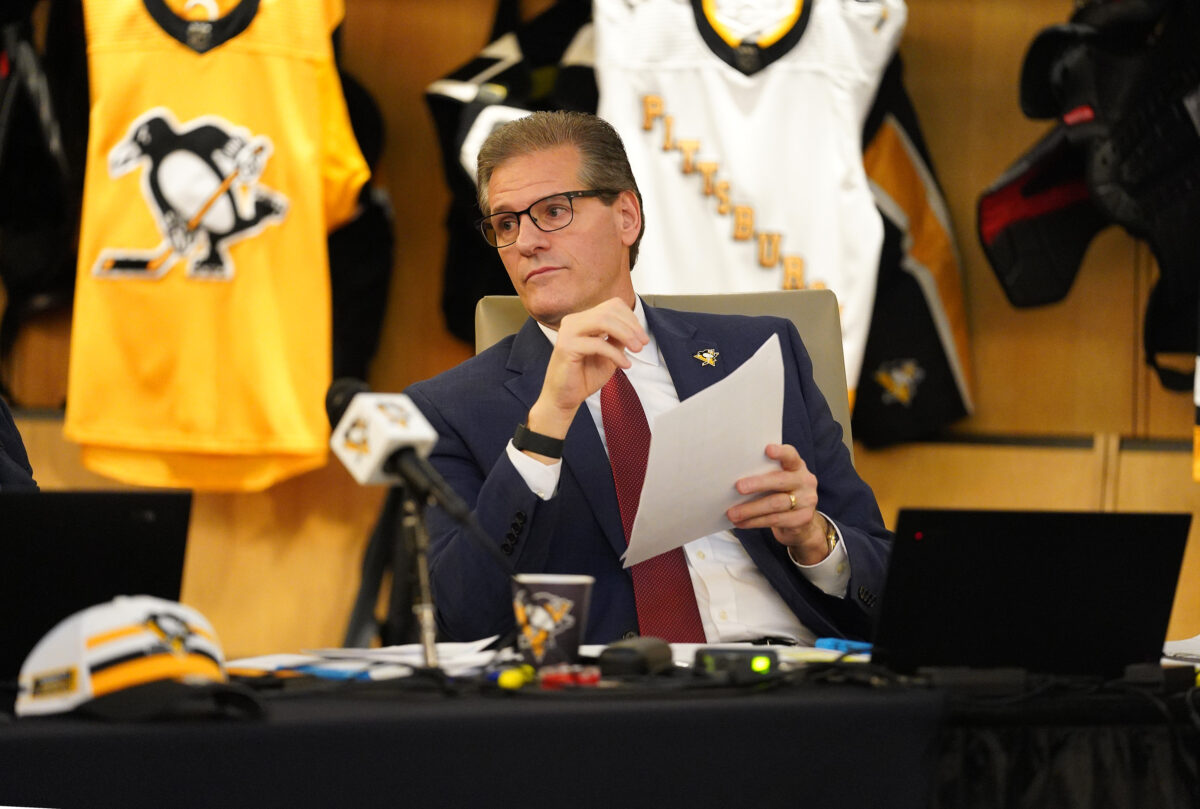There’s been a lot of talk about how the 2021-22 season could be the last go-round for the Pittsburgh Penguins‘ core that has carried the team for a decade and a half. A Penguins’ team without icons like captain Sidney Crosby, Evgeni Malkin, and Kris Letang will no doubt be difficult for fans to see. While the potential departures of the star players will receive the majority of the attention, one of the most important has already occurred.

Last week, Penguins’ CEO David Morehouse announced his resignation after 16 years at the helm. His tenure resulted in three Stanley Cups, a playoff appearance in each season he was in charge, and the complete reversal of the team’s fortunes.
Morehouse and Lemieux Changed Penguins’ Culture
Morehouse arrived in Pittsburgh in 2004 as a team consultant and was promoted to the presidency in 2007. In that role, he oversaw the Penguins’ 2009, 2016, and 2017 Stanley Cup victories. In the years before Morehouse’s appointment, the Penguins were in danger of folding and were on the verge of bankruptcy. They were initially saved in 1999 when former star Mario Lemieux purchased the team from Roger Marino and Howard Baldwin. The franchise had been hemorrhaging money for much of the 90s as Baldwin sold off many of the Penguins’ major revenue sources. Luxury boxes, advertising, and broadcasting contracts disappeared while player salaries comparatively skyrocketed (from “On Thin Ice, Penguins Saved” Thomas Heath. The Washington Post. 07/10/1999).

Ownership of the team was officially transferred to Lemieux on Sept. 1, 1999, and that was when the transformation began. Morehouse arrived four years later, just in time for the nexus moment in modern Penguins’ history. His initial role as an arena consultant helped pave the way for the Penguins to move from the Pittsburgh Civic Arena to PPG Paints Arena in 2010. The year he became president, they began a sellout streak that lasted 14 full seasons and a total of 633 games from 2007-08 until Oct. 2021. Each member of the core was drafted and developed during Morehouse’s tenure with the Penguins, and each has since become among the best players in the league at their position.
Morehouse’s Impact on Penguins Understated
Normally, when NHL teams make the news for big hires or signings, the general manager (GM) receives the credit or the criticism. In the case of the Penguins, Morehouse deserves just as much credit, as he was the one who approved the hiring of those GMs and coaches. He gave the seal of approval to former Penguins’ GM Jim Rutherford, the architect of the 2016 and 2017 championship teams. He also hired Ron Hextall, the current GM who’s been extremely successful in his short tenure.

Morehouse’s impact goes well beyond the boardroom. Alongside his seemingly never-ending quest to improve the team, he also made it his goal to further the game of hockey in the community through the Pittsburgh Penguins Foundation, donating equipment to local schools and building community rinks, giving kids a chance to fall in love with hockey who may not have had a chance to otherwise. He also championed the Penguins’ Executive Management Program, which gives opportunities to female and minority athletes.
Related: Pittsburgh Penguins GM Committed to Keeping Core Together
Morehouse also developed the “Little Penguins Learn to Play” program, which donates equipment to kids aged five to nine and provides them with up to 10 weeks of on-ice coaching and instruction (from “Ron Cook: David Morehouse’s impact on Penguins is underrated” Ron Cook. Pittsburgh Post-Gazette. 01/05/2022).
For over 15 years, Morehouse has been the guiding hand that has taken the Penguins from basement-dwellers to perennial contenders. He was also the driving force behind the Penguins’ popularity change and culture shift, and has instilled a love of hockey across generations in the Steel City.
